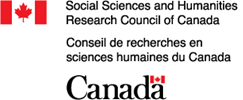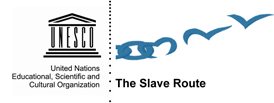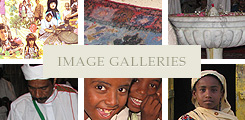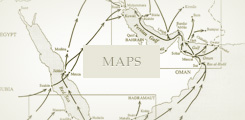September 8-9, 2012
Pond Inlet, Brock University, Canada
The Universal Declaration of the Protection and Promotion of Cultural Diversity adopted by the UNESCO General Assembly in November 2001 affirms that:
“culture should be regarded as the set of distinctive spiritual, material, intellectual and emotional features of society or a social group, and that it encompasses, in addition to art and literature, lifestyles, ways of living together, value systems, traditions and beliefs, and that culture is at the heart of contemporary debates about identity, social cohesion, and the development of a knowledge-based economy, affirming that respect for the diversity of cultures, tolerance, dialogue and cooperation, in a climate of mutual trust and understanding are among the best guarantees of international peace and security.”1
In the light of UNESCO’s declaration this workshop aims at exploring the cultural heritage of Iranian Baluchis, which is at the risk of disappearing. In Baluchistan this heritage encompasses the Baluchis’ values, language, ways of life, beliefs and rituals, experiences, and ethnic identity. The workshop is organized in the framework of the project “Iranian Borderland: Baluchi Identity and Culture.”
The workshop brings together scholars, graduate students and other experts from different fields of study to discuss their works but also proffer new research approaches and methodologies on the topic of Baluchi identity and culture and broadly on the need for cultural preservation.
Download workshop program
Photo gallery
MUSICAL PERFORMANCE
Mehdi Rezania: Artistic Director
The program will include folklore music of eastern and southern Iran and Persian classical pieces in the same mode. The maqam (mode) for this program is called “Shoor/Shur” which is popular in eastern Iran and in the repertoire of Persian classical music. Radif (the repertoire of Persian classical music) has many similarities with folklore music in both scales and melodic characteristics. In fact the Radif is a compilation of folklore music of different regions of Iran with few modification made by masters who practiced them. The folklore and classical pieces will be played side by side to demonstrate their similarities and connections.
Invited participants
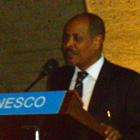 DR. ALI MOUSSA IYE
DR. ALI MOUSSA IYE
Chief of the History and Memory for Dialogue Section,
UNESCO Headquarter, Paris
Ali Moussa Iye is a scholar from Djibouti. He holds a PHD in Political Sciences from the Institute of Political Sciences in Grenoble, France. Within UNESCO, Mr Moussa Iye, was first Coordinator of the UNESCO Programme of Culture of Peace in the Horn of Africa based in Addis Ababa. He was then in charge of the Democracy Programme and finally of the Programme on the Fight against Racism and Discrimination at UNESCO Headquarters.
He is actually Chief of the Intercultural Dialogue Section and in charge of two important UNESCO Programmes : The Slave Route Project and the General and Regional HistoriesProject of UNESCO (including The History of Humanity, the General History of Africa, the General History of Latin America, The general History of the Caribbean).
Parallel to his functions within UNESCO, Mr Moussa Iye continues his research in the field of Political Anthropology, in particular on the democratic traditions and Customary laws of the Somali Pastoralists . He is the author of a pioneer work on the “Pastoral Democracy” of Somalis : “Le verdict de l’Arbre : etude du Xeer Issa”, 1990. He also published short stories and contributed to several research books and international reviews and Journals on the Horn of Africa.
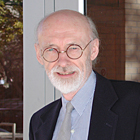 DR. BRIAN SPOONER, KEYNOTE SPEAKER
DR. BRIAN SPOONER, KEYNOTE SPEAKER
University of Pennsylvania, USA
Dr. Spooner is a Professor of Anthropology, and museum curator for Near Eastern Ethnology at the University of Pennsylvania in the United States. He has a singular combination of experience as a policymaker (as former advisor to UNESCO’s Program on Man and the Biosphere) and an ethnographer and cultural/linguistic expert. Currently a Co-Director at the Joseph H. Lauder Institute of at the University of Pennsylvania in Philadelphia, he has also been the Director of the Middle East Center. His recent fieldwork in the Iranian province of Baluchistan and along the Afghan and Pakistani borders has resulted in extensive publications on the subject of Baluchi and Persian cultural anthropology and language.
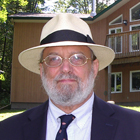 DR. PHILIP CARL SALZMAN
DR. PHILIP CARL SALZMAN
McGill University, Canada
Dr. Salzman offers unparalleled insights based on four decades’ worth of research into the culture and anthropology of Baluchistan. A Professor of Anthropology at McGill University in Montreal, he is also an Open Society Institute International Fellow for Anthropology at the American University of Central Asia, Kyrgyzstan, and an Erasmus Mundus Scholar at the University of Catania, Sicily. In 2011, he was appointed Houtan Senior Visiting Fellow in the Anthropology of Iran at St. Andrews University, Scotland. His extensive ethnographic field research in Iranian Baluchistan, Gujarat and Rajasthan in India has been published widely.
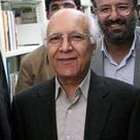 DR. IRAJ AFSHAR SISTANI
DR. IRAJ AFSHAR SISTANI
Author and Researcher, Iran
Dr. Sistani holds a Ph.D in sociology. He has published more than 140 books and hundreds of articles exploring subjects ranging from Iranology and anthropology to climatology and the Persian Gulf. He has received numerous national and international awards, including earning Iran’s Best Book of the Year award in 1989 for Tribes, Nomads and Gypsies. Having himself been born in Iran’s southwestern province, he stands at the forefront of scholarship that details the rich cultural, anthropological and historical heritage of Baluchistan. Indeed, the donation of his extensive personal library helped establish a library in the region.
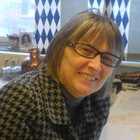 DR. CARINA JAHANI
DR. CARINA JAHANI
Uppsala University, Sweden
A leading authority on the Balochi language, Carina Jahani’s experience extends back to the 1980s and includes an examination of the role language plays in individual and group identity formation. Her knowledge of the Balochi language and literature as well as the role of language and literature in the Baloch identity and culture arises from several field studies conducted among the Baloch in Quetta, Karachi and Iranian Balochistan. She has also studied how identity and culture is expressed in the Balochi literature (both oral and written). Further research on the subject was conducted in cooperation with the Department of English and Linguistics, University of Sistan and Balochistan, with financial support from the Swedish Research Council-SIDA, Swedish Research Links, Stockholm.
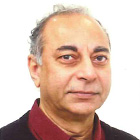 DR. ABDULAZIZ Y. LODHI
DR. ABDULAZIZ Y. LODHI
Uppsala University, Sweden
Dr. Lodhi brings a wealth of experience in the field of cultural anthropology. Professor of Swahili and Comparative Bantu at the Department of Linguistics and Philology at Uppsala University in Sweden, he has published numerous articles and books on the languages and cultures of diasporic peoples in East Africa (including the Baluchis). He is also a Visiting Professor at the Institute of Language and Communication Studies and Advisory Board Member of the Language Documentation and Description (LDD) program at Trondheim University (Norway), Visiting Professor at the State University of Zanzibar (SUZA, Tanzania), Centre for African Studies in Copenhagen, and Consultant in Swahili Lexicography with dictionary projects at the Oxford University Press in Nairobi (Kenya), the Zanzibar National Swahili Council (BAKIZA) and the Institute of Kiswahili Studies, University of Daressalaam (Tanzania).
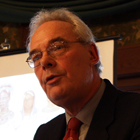 DR. PAUL LOVEJOY
DR. PAUL LOVEJOY
Canada Research Chair in African Diaspora History,
York University, Canada
Dr. Lovejoy is Director of the Harriet Tubman Institute for Research on the Global Migrations of African Peoples at York University, Toronto. He received the Distinguished Africanist Research Excellence Award from the University of Texas at Austin in 2010. A Fellow of the Royal Society of Canada and Canada Research Chair in African Diaspora History, he has received many prestigious awards including a President’s Research Award of Merit from York University and a Senior Research Killam Fellowship from the Canada Council for the Arts for his dedication, lifetime of service and contributions to the discipline.
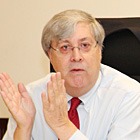 DR. LAWRENCE G. POTTER
DR. LAWRENCE G. POTTER
Columbia University, USA
Dr. Potter is a leader in research associated with the cultures and peoples of the Persian Gulf regions. In this capacity, he has served since 1994 as Deputy Director of the Gulf/2000 Project, a major research and documentation project studying this region at Columbia University’s School of International and Public Affairs. As administrator of several major international research projects, he has organized and participated in conferences and edited books on the Persian Gulf states.
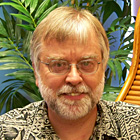 DR. GEORGE FRANKLIN RHOADES
DR. GEORGE FRANKLIN RHOADES
Director/Psychologist, Ola Hou Clinic, Hawaii
Fieldwork in Iranian Baluchistan on healing rituals has given the clinical psychologist Dr. Rhoades important insights into the cultural practices of this region of the world. He founded and now directs the Ola Hou Clinic in Aiea, Hawaii, and is also affiliated with various other organizations including the International Society for the Study of Dissociation (ISSD) and the Totally IN Christ (TNC) Teen Ministry. As an Adjunct Professor at Wayland Baptist University in Hawaii, he has published and spoken extensively on the psychological, sociological and cultural aspects of trauma from a cross-cultural perspective.
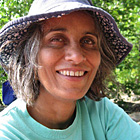 DR. FARHAT SULTANA
DR. FARHAT SULTANA
Anthropologist, Pakistan
Trained as a medical anthropologist, Dr. Sultana co-founded Agahi, an NGO working for enhancement of quality education in Northern district of Mansehra, Pakistan. Her work with many international development agencies such as World Bank, WHO, UNICEF, UNHCR and CIDA has focused on women and children’s health issues in relation to culture and local healing rituals. She also has done considerable research on the relationship between health and cultural issues among the Baluchi people.
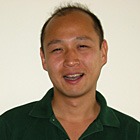 DR. HIDEAKI SUZUKI
DR. HIDEAKI SUZUKI
McGill University, Canada
Dr. Suzuki is a Visiting Scholar at the Indian Ocean World Centre, McGill University in Montreal, supported by the Japan Society for the Promotion of Science. His unique experience on the history and peoples of the Indian Ocean allows him to place Baluchi identity and culture within a broader regional context. He has published and spoken extensively on the subject of slavery and migration.
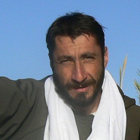 DR. VAHE S. BOYAJIAN
DR. VAHE S. BOYAJIAN
University of St. Andrews, UK
Dr. Boyajian is working on a second PhD entitled “Social relations and religious experiences in Sarhadd, Iranian Baluchistan”. A decade’s worth of fieldwork in Baluchistan allows him to bring valuable knowledge about Baluchi ethnography and language. In 2002, he was a Visiting Scholar at Boston University as part of research associated with “Ethnic and Group Identity in the Bordering Areas of Iran and Pakistan”; while in the US, he participated in the Program on Asia and the Caucasus, Davis Center for Russian and Eurasian Studies at Harvard University.
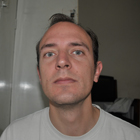 JUST BOEDEKER
JUST BOEDEKER
Center for Modern Oriental Studies, Germany
Having conducted extensive fieldwork in Baluchistan and Afghanistan, Boedeker is a member of the competence network Crossroads Asia as well as a Research Fellow at the Zentrum Moderner Orient (ZMO) in Berlin. He is completing his PhD thesis “Baloches in Iran and Afghanistan — Identities between Ethnicity, Nationality, Tribal Culture and Regionalism” at Humboldt University in Berlin with help from a prestigious Elsa-Neumann-Stipendium des Landes Berlin scholarship. He has published widely on the subject of Baluchi ethnography and cross-culture.
ORGANIZED AND SPONSORED BY
Workshop Organizer:
Behnaz Mirzai, Brock University, Canada
Copy right and all rights reserved.



